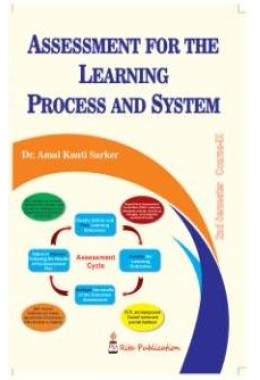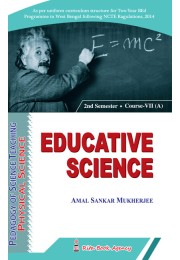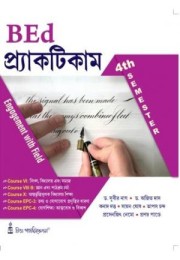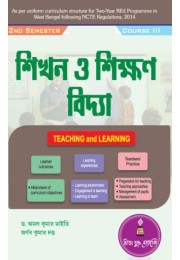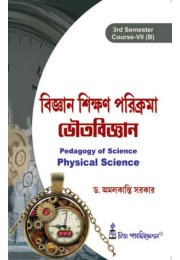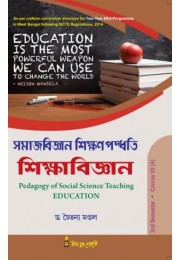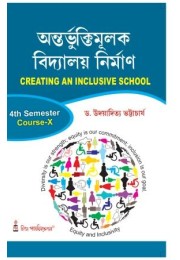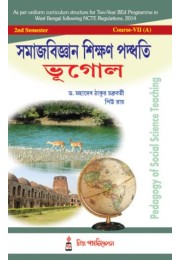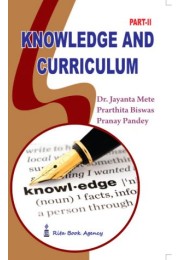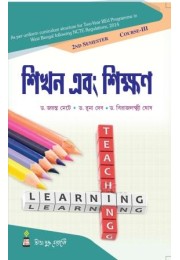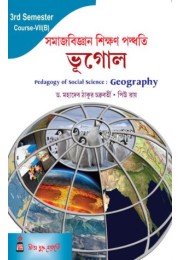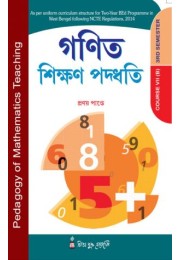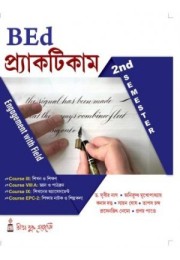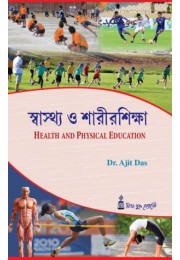Assessment Of The Learning Process And System–Dr. Amal Kanti Sarker
Rs.228.00Rs.240.00
Author: Assessment of the Learning Process and System
Availability: In Stock
Publisher: Rita Publication
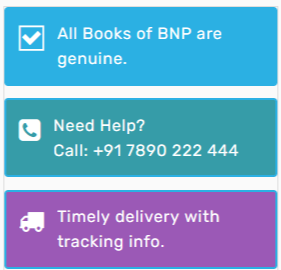
Course-IX (1.2.9) Assessment for Learning
Theory: 50 + 50 Engagement with the field: 50 l Full Marks:150
1st Half : Assessment of the Learning Process
Unit-I: Concept of Evaluation and Assessment
- Meaning of Test, Measurement, Assessment and Evaluation
- Distinguish among Measurement, Assessment and Evaluation
- Nature and purpose of Evaluation
Unit-II: Approaches and Techniques of Evaluation and Criteria of Assessment Procedure
- Approaches–Formative and Summative; NRT and CRT
- Techniques–observational, self-reporting, psychological and Educational tests
- Validity–Meaning, Types and Measurement
- Reliability–Meaning, Types and Measurement
- Norm and Usability
Unit-III: Psychological Test
- Meaning and concept
- Preliminary idea about–Intelligence test, Aptitude test, Interest Inventory, Attitude test, Creativity and Personality
- Achievement test–Meaning, characteristics, steps for construction and uses
- Diagnostic and prognostic test
Unit-IV: Evaluation
- Types of Tests; Written Test, Oral Test, NRT, CRT, Summative Test, Formative Test, Diagnostic Test.
- Scoring and Grading, Analysis of Score and Its Interpretation
(a) Tabulation of data.
(b) Graphical (Histogram, frequency Polygon)
(c) Central Tendency (Mean, Median Mode)
(d) Deviation–Standard.
UNIT-V: Problem–Learner
- Problem–Learner; Concept and Types,
- Identification of Problem–Learner; Observation, Case Study, Socio-Metric & Testing (Educational and Psychological) Techniques.
- Remedial Measures—Guidance & Counseling, Life-Skill Training.
2nd Half : Assessment of the Learning System
Unit-I: Infrastructural facilities
- Rooms (types and numbers), l Classroom furniture,
- Sanitation facility, l Drinking water,
- Playground etc. l Library
Unit-II: Human Resource
- Teaching staff (Full Time + Part Time + Para teacher)
- Non -Teaching staff
- Students:- Boys / Girls / SC / ST /OBC / Minority / Special Needs Children.
- Teacher-student Ratio.
Unit-III: Management & Record Maintenance
- Managing Committee
- Committees for Academic Purposes
- Different Committees
- Fee Structure,
- Number of units/School hour/time table/periods
- Students participation—student Self-Government.
- Records: v Accounts related v Staff related v Student related v Curriculum related
Unit-IV: Special Service Provided
- Mid-Day Meal l Book bank for poor students
- Tutorial for weaker students l Remedial teaching
- Parent Teacher Association l Staff Welfare Service
- Health Programme l Conducting Talent Search Examination
- Providing Scholarship
Unit-V: School Community relationship
- Community involvement in decision making.
- Community Contribution to school
- Meeting with community members
- School response to parents.
Engagement with Field/Practicum
Any two of the following—
- Writing educational objectives, learning experience and corresponding evaluation techniques, General and specific objectives
- Framing measurable and non-measurable learning outcomes
- Determining the objectivity given an answer key
- Determining the objectivity of a tool
- Finding out the content validity of the given question paper
- Designing Rating scale, Questionnaire, Interview Schedule in a given a topic
- Framing Different types of questions
- Preparation of Blue Print and a question paper
- Prepare graphs and use statistics for analysis of test result

